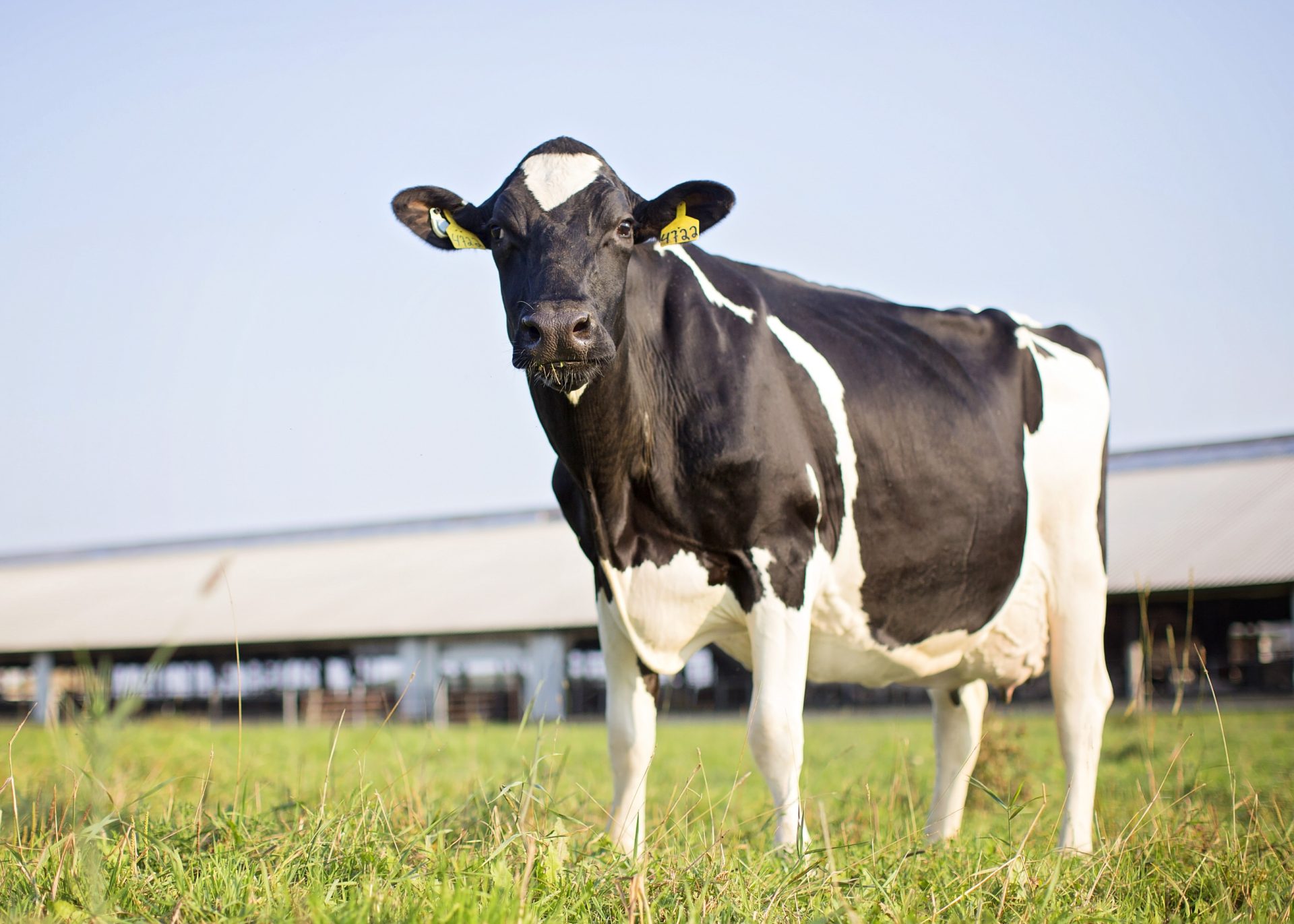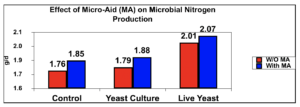
Synergistic Opportunities of Micro-Aid® and Dietary Yeast Supplements in Lactating Cow Rations
This study was conducted to evaluate the synergistic opportunities of Micro-Aid® when fed in combination with commercially available dietary yeast supplements to lactating cows on microbial metabolism in a continuous culture of rumen contents. The basal diet was prepared to meet the requirements of a lactating dairy cow producing 90 lbs milk/day. Treatments were: 1) Control; 2) Micro-Aid® added to provide 2.0 gram/cow/day; 3) Yeast Culture (YC) added at manufactures recommended rate; 4) Micro-Aid® + YC; 5) Live Yeast (LY) added at manufactures recommended rate; and 6) Micro-Aid® + LY. Continuous culture fermentations were conducted using conditions simulating rumen parameters of a lactating cow. Each diet was fermented in triplicate 9-day fermentations. Effluent samples were composited for analysis during the last 3 days.

- Supplementing Micro-Aid® at 2 g/head/day increased microbial nitrogen production by 5.1% in comparison to the Control treatment. An increase in microbial protein flow to the lower gastrointestinal tract provides an ideal source of amino acids for nutrient uptake and utilization in physiological processes.
- A 5 to 6% increase in microbial protein production supports the opportunity for Micro-Aid® to be fed in combination with commercially available dietary yeast supplements and enhance animal performance.
- Micro-Aid® + YC vs. YC = 5.1%
- Micro-Aid® + LY vs. LY = 6.9%
- Micro-Aid® improved the efficiency of microbial growth as demonstrated by the following efficiencies and is attributed to more carbon compounds being diverted from gas or heat production to microbial protein synthesis
- More microbial protein per unit of carbohydrate digested
- Less volatile fatty acids per unit of microbial nitrogen

